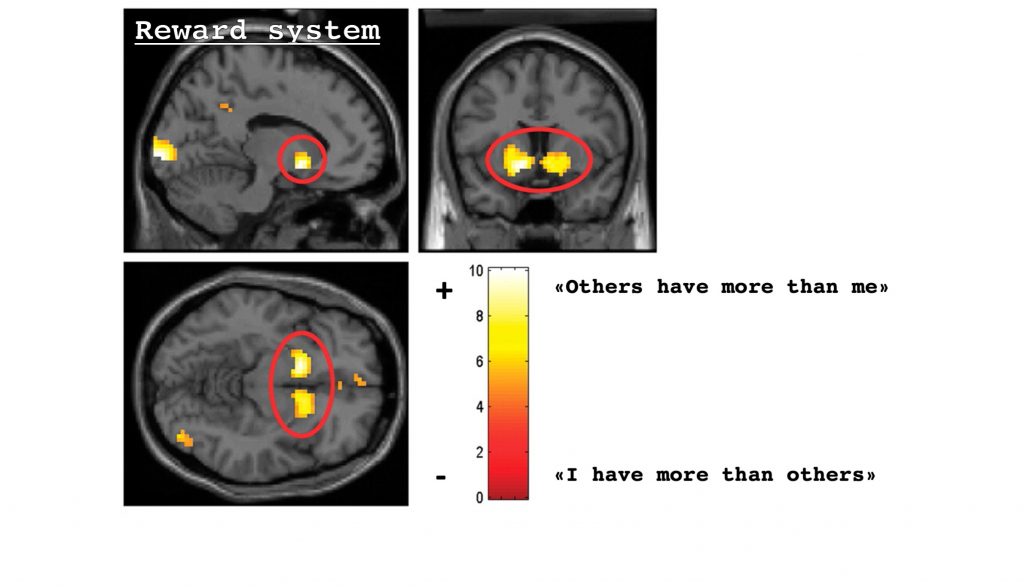This post is also available in Dutch.
Comparing people: the easy way
There are many reasons to compare yourself to others. Comparison is an efficient way to make judgements and decisions without engaging in exhaustive and time-consuming information research. In order to allow social comparison, we need to identify similarities and differences between us and others. Depending on the type of social organization we belong to, we may express different sensitivities towards social comparison. For example, researchers found that people in collectivist communities that emphasize the rights and interests of the social group show a greater tendency for social comparison behaviors than those in individualistic societies in which people are more independent.
People justify the use of social comparison with different motives. One such motive can be the need to identify oneself to a group of peers sharing common traits and values, hereby creating group cohesion (i.e., collectivist approach). The reverse strategy is to look for distinctiveness, using comparison as a tool to determine a hierarchical relationship between one and another (i.e., individualistic approach).
Social comparison in the brain’s reward system
Neuroimaging and non-invasive electrophysiological brain recordings in humans have revealed that a specifically reward-related neural system is involved in social comparison. Notably, researchers reported that, when participants engaged in social comparison behaviors, their brain activity in reward-related areas increased not only when they earned something better than someone else (e.g., “I get a cookie, you get a rice cracker”), but also in the opposite case: when envying someone else (“Uh… he gets a brownie now?!”). Surprisingly, researchers found no such effect when they increased the absolute value of the reward itself (e.g., from one cookie to a whole box) without the self-to-other outcome comparison.
The effect of social norms
Many factors seem to influence the ways we tend to compare people and not just at the individual scale. Sociocultural and political background has been shown to bias the ways we relate to each other. Case studies of countries or states with opposing political beliefs (e.g., conservative versus liberal) showed strong discrepancies in social comparison. People complying with conservative systems had the tendency to pay greater attention to anyone deviating from the social norms in force, using comparison as a motive to exclude outsiders. In contrast, people living in communities with greater sociocultural diversity and looser standards were less quick to seek differences.
Good or bad strategy?
Comparison is an efficient statistical reasoning that is very convenient when there is a need to choose between two alternative choices without engaging in endless thoughts and seeking massive information about the absolute value of each outcome. This is definitely a strategic approach that we use all the time. However, the question remains whether this type of mathematical thinking also applies to people in general. Another question is how good are we at grading and comparing individual attributes? Most importantly, the motive for social comparison should be questioned. Is it just a way to reassure ourselves by competing with others? Or is the aim to eventually opt for a better choice than the current one?
Image from Fliessbach K et al, 2007, Science. doi: 10.1126/science.1145876
Author: Kim Beneyton
Buddy: Christienne Damatac
Editor: Wessel Hieselaar
Translation: Judith Scholing
Editor translation: Marlijn ter Bekke
